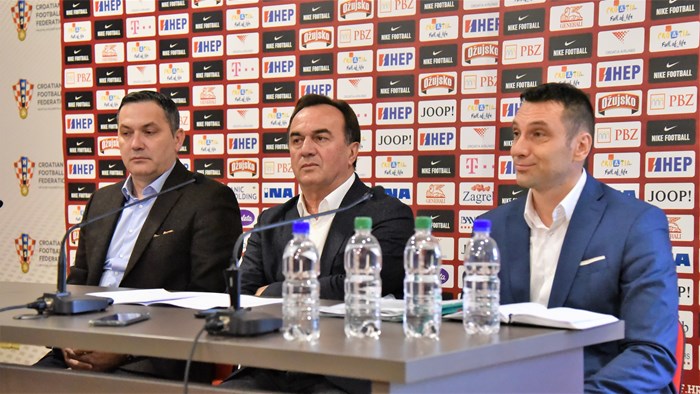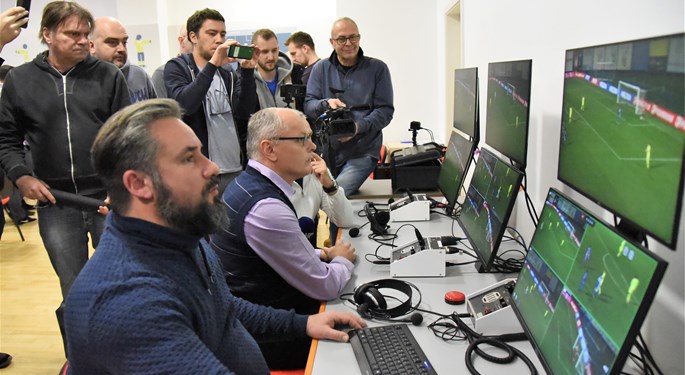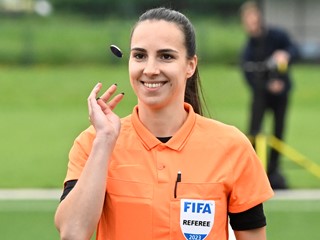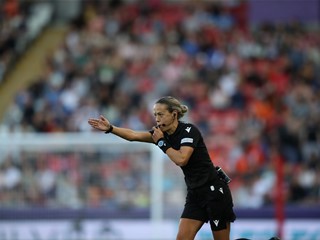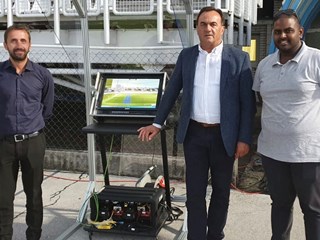After going through an extensive VAR education process and submitting a request for approval, the Croatian Football Federation (HNS) has received the final approval of the International Football Association Board (IFAB) for beginning with VAR usage in Croatian football.
Education for members of the media was held in the offices of the Football Referees Committee at the HNS Football Academy. Media representatives received a detailed lecture on VAR usage, the philosophy behind the technology, the rules for its application, and the principles according to which it functions.
The introduction of VAR into Croatian football was financed through the FIFA Forward Development Programme.
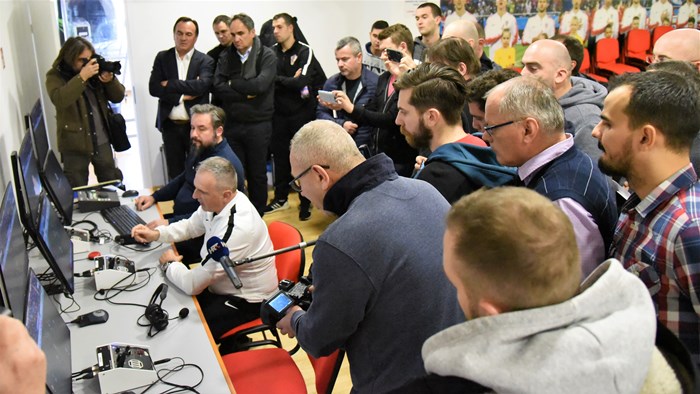
foto: Dražen Patarčić/HNS
The seminar was opened by HNS executive director Marijan Kustić.
“This is a big step forward for HNS. By introducing VAR, our aim was to grow football spectators’ trust in the accuracy of refereeing in Croatian football. I think we’ve made a great move and that this is another huge improvement for Croatian football, just like the new hybrid pitches we built were big improvements in terms of infrastructure. I would like to thank everyone who worked on this project,” said Kustić.
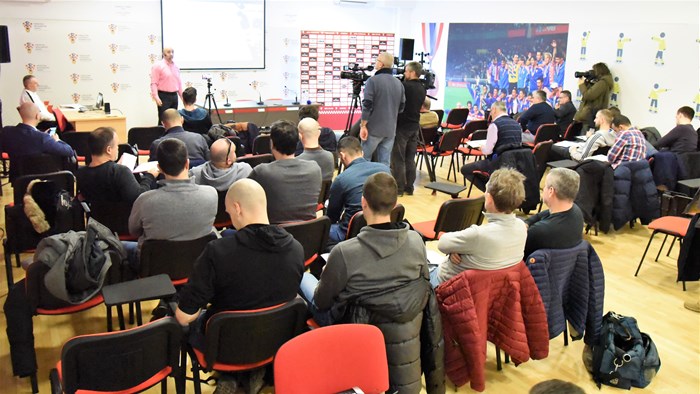
foto: Dražen Patarčić/HNS
HNS vice-president and head of the Football Referees Committee Ante Kulušić served as project manager for VAR introduction in Croatia.
“I would like to thank the whole project team, including president Šuker, executive director Kustić, the HNS Executive Committee, and head of international affairs and licensing Ivančica Sudac. After obtaining IFAB’s approval, there are no more roadblocks in introducing VAR, which will be used at matches in the Croatian First Division and matches of the Croatian Cup. We plan to hold detailed seminars on VAR for clubs and we hope the introduction of VAR will flow as smoothly as possible. If we manage to improve referee decision-making in key moments in the game, we’ll have done a great thing,” said Kulušić.
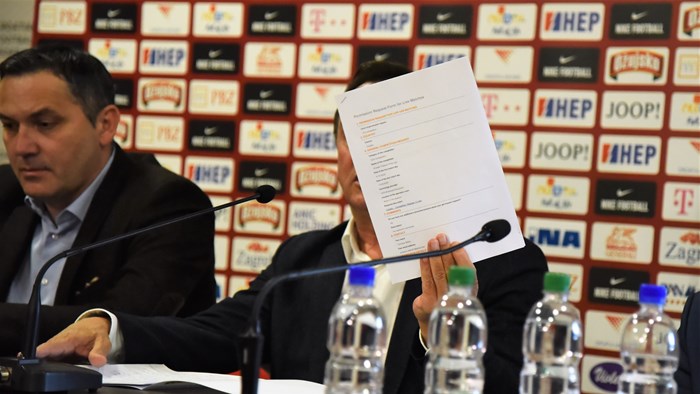
foto: Dražen Patarčić/HNS
Head of VAR education in Croatia Domagoj Vučkov explained key aspects of the process of introducing the technology:
“This has been a huge experience, a fantastic thing. The process took place over nine phases, segment by segment, and we also organized test matches. Sixteen referees have received the education necessary to work with VAR, and we’ve also educated 12 video assistant referees, 14 assistant VARs and five technicians. The most important message is that the decision is always made by the referee on the pitch, and that VAR is a tool to correct only clear and obvious mistakes, keeping in the mind the philosophy of ‘minimum interference, maximum benefit’. A time limit does not exist because correct decisions are more important than speed.”
